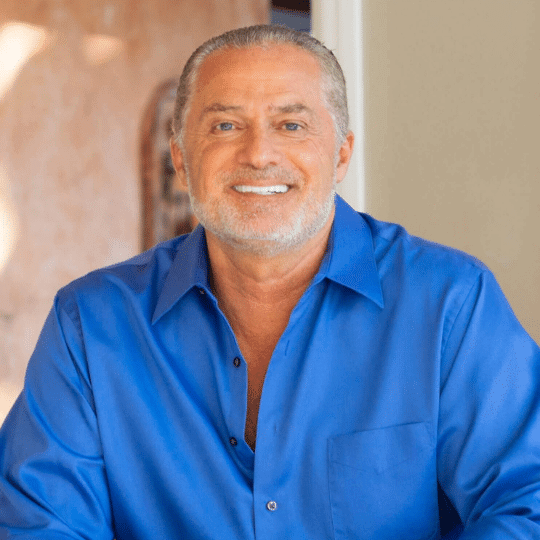How to Find Mentorship for Multifamily Real Estate 2025


Finding mentorship for multifamily real estate deals can dramatically accelerate your success. You’ll avoid costly mistakes, learn proven strategies, and gain access to opportunities that might otherwise take years to uncover on your own. The right mentor doesn’t just teach you, they save you money, help you make money faster and they open doors. In this guide, we will explain how to find mentorship for multifamily real estate. You can choose from free community groups or structured coaching programs. We will show you what to look for in a mentor relationship.
Multifamily investing is not simple. Between underwriting, raising capital, and managing properties, there are countless moving parts. Books and podcasts can give you knowledge, but mentorship provides real-time feedback and accountability.
Research inside investor communities shows that those who engage with mentors and accountability groups close deals faster, scale portfolios larger, and remain active through market cycles . In other words, mentorship shortens the learning curve and provides the support needed to persevere.
One of the most accessible ways to find a mentor is through your local REIA. These groups host monthly meetings where experienced investors share insights and newcomers can network.
At these events:
Introduce yourself to speakers and active members.
Ask if they’ve mentored others before.
Volunteer to help with event organization to show initiative.
The in-person connections can lead to lasting relationships, especially when paired with consistent follow-ups.
Digital platforms make mentorship more accessible than ever. Communities like BiggerPockets allow you to interact with seasoned investors, join niche subgroups, and participate in “deal review” threads.
On LinkedIn, Instagram, and Facebook:
Follow multifamily thought leaders.
Engage with their posts (ask meaningful questions, not just “great post”).
Share your own journey to attract experienced mentors who resonate with your drive.
Some online mentors will even jump on Zoom calls to review your underwriting or capital raise strategy if you’ve shown genuine effort first.
Live events are mentorship goldmines. You get education, but more importantly, you get proximity. Being in the same room with active investors creates opportunities to form mentorship relationships naturally.
Look for:
Multifamily bootcamps that combine teaching with networking.
National conferences that attract top operators.
Smaller workshops where you can interact more personally with the speaker.
Pro tip: Don’t just attend, participate. Ask thoughtful questions, volunteer to share your goals, and follow up after the event.
Cold outreach works when done respectfully. Identify successful operators in your market and send a concise message:
Share who you are and what you’re working on.
Express why you admire their path.
Offer value (for example, helping analyze deals or doing market research).
Many investors are willing to mentor beginners who show initiative and persistence. The key is to respect their time and approach the relationship as a giver, not just a taker.
Mentors don’t always come from the investing side. Multifamily property managers and brokers see deals every day and understand what separates success from failure.
Property managers can mentor you on operations, tenant retention, and expense control.
Brokers can guide you on deal flow, underwriting assumptions, and how to build credibility with sellers.
Building these relationships can give you “informal mentorship” that still shapes your growth.
Some real estate education companies provide structured mentorship as part of their programs. This is where you get both formal learning and built-in accountability.
For example, Rod Khleif’s Warrior Program combines:
A network of 1,700+ active multifamily investors.
Direct coaching from experienced mentors who’ve closed deals.
Accountability groups to keep you moving forward .
Access to tools, resources, and partnerships that extend beyond theory.
This structured model ensures you’re never “going it alone” and is often the fastest path to scaling.
Accountability groups are smaller circles of investors who meet regularly to share progress, challenges, and wins. Inside Rod Khleif’s community, for example, investors meet weekly to review underwriting, broker outreach, and capital raising .
Why they work:
They keep you consistent.
You learn from peers who may be just a step ahead.
They often lead to partnerships on actual deals.
You can start your own accountability group through Meetup.com, social media, or by organizing people you’ve met at events.
Attorneys, lenders, and even insurance brokers can act as mentors in their own way. They’ve seen hundreds of deals and know what pitfalls to avoid. Many will happily explain deal structures, financing nuances, or compliance tips if you build trust and show appreciation for their expertise.
This type of “situational mentorship” can fill in gaps as you build your network of guides.
No matter which path you pursue, mentorship works best when it’s a two-way street. Before asking someone to guide you, consider what you can offer:
Administrative help.
Market research.
Digital marketing support.
Assisting on due diligence.
Even small contributions can demonstrate your seriousness and earn you deeper mentorship.
While you can “mix and match” mentorship from different sources, the most effective path is often aligning with a mentor or program that provides a complete ecosystem: education, accountability, community, and deal support.
That’s why so many investors gravitate toward structured programs like Rod Khleif’s Warrior Program. It offers:
Live events and bootcamps where you learn directly from practitioners.
Free resources like Rod’s Guide to Apartment Syndications, his top-ranked Lifetime CashFlow Podcast, and extensive blogs.
Community support that fosters mentorship beyond just the coaches—many Warriors close deals together.
Finding a mentor for multifamily real estate is less about luck and more about strategy. Show up consistently, add value first, and immerse yourself in the communities where successful investors gather.
You can find support through local REIAs, online forums, accountability groups, or programs like Rod Khleif’s Warrior Program. The path is available; you just need to take the first step.
Remember: Mentorship isn’t just about knowledge. It’s about access, accountability, and belief. The right mentor can help you see opportunities you didn’t know existed and push you to achieve goals you once thought were out of reach.
Why is mentorship important in multifamily real estate?
Mentorship shortens the learning curve and provides accountability. A mentor can help you with underwriting, raising capital, managing brokers, and avoiding costly mistakes. They also provide encouragement and perspective, especially in tough markets. Investors with mentors typically close deals faster and scale portfolios more effectively than those who go it alone. Mentor, Rod Khleif, is known for being fully transparent about mistakes and challenges he’s faced in the past so he can help his student avoid them.
How can I find a multifamily real estate mentor?
You can connect with mentors through local REIAs, real estate meetups, and online platforms like BiggerPockets. Social media communities on LinkedIn, Instagram, and Facebook are also effective. Attending bootcamps, workshops, or multifamily conferences gives you face-to-face access to experienced operators. Structured programs like Rod Khleif’s Warrior Program offer direct mentorship, accountability groups, and deal support.
What is an accountability group in multifamily investing?
An accountability group is a small circle of investors—usually 5–10 people—who meet regularly to share progress, challenges, and wins. They review underwriting, capital raising, and deal strategies together. Members push each other to take action, and partnerships often form within the group. In Rod Khleif’s Warrior Program, accountability groups are a core component and have helped many investors close their first deals.
Are paid mentorship programs worth it?
Paid mentorship programs can be extremely valuable if they include structured guidance, accountability, and community support. They provide direct access to experienced investors, proven systems, and deal flow that’s hard to replicate alone. For example, Rod Khleif’s Warrior Program offers one-on-one mentorship, a network of over 1,700 active multifamily investors, and resources designed to help members take action quickly. His program is well respected, with over 260,000 student owned units and hundreds of case studies.
What are the risks of choosing the wrong mentor?
A poor mentorship match can waste time and money. Risks include working with someone who overpromises, lacks real deal experience, or doesn’t have your best interests in mind. Always vet potential mentors by asking about their track record, the size and type of deals they’ve done, and speaking with past students or partners.
How do I know if I’m ready for a mentor?
You’re ready for a mentor if you’ve done basic education (books, podcasts, online courses) and are actively looking for deals or partners. Mentors value students who take initiative. If you’re committed to taking action and open to feedback, you’ll benefit from mentorship, even if you’re just starting out.
What are the best events to find mentors for multifamily real estate?
Multifamily bootcamps, REI conferences, and real estate expos are excellent places to meet mentors. These events attract top operators and active investors, creating opportunities for networking and mentorship. Look for events that combine teaching with networking, such as Rod Khleif’s Multifamily Bootcamps, where attendees gain both education and access to a powerful community.
What free mentorship options are available?
If you’re not ready for a paid program, you can still find mentorship through free avenues: joining REIAs, participating in online forums, starting an accountability group, or connecting with experienced investors on LinkedIn. Many podcasts, blogs, and free guides from thought leaders like Rod Khleif also provide mentorship-style insights at no cost.
Disclaimer: This article was written with the help of AI and reviewed by Rod’s team.

Many people use their phones to handle everyday tasks, from scheduling appointments to staying connected with family. Budgeting apps are...

Parent PLUS borrowing will be capped beginning July 1, 2026: up to $20,000 per student per year and $65,000 lifetime...

Advisors affiliated with independent broker/dealers often assume that “independence” is a destination rather than a spectrum. Yet, when frustration creeps...